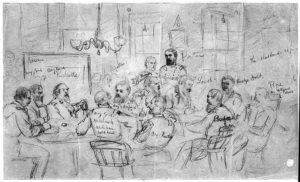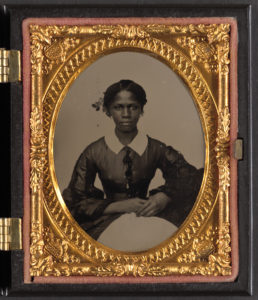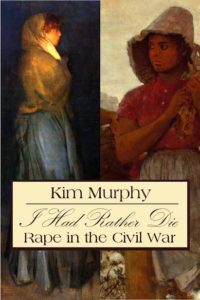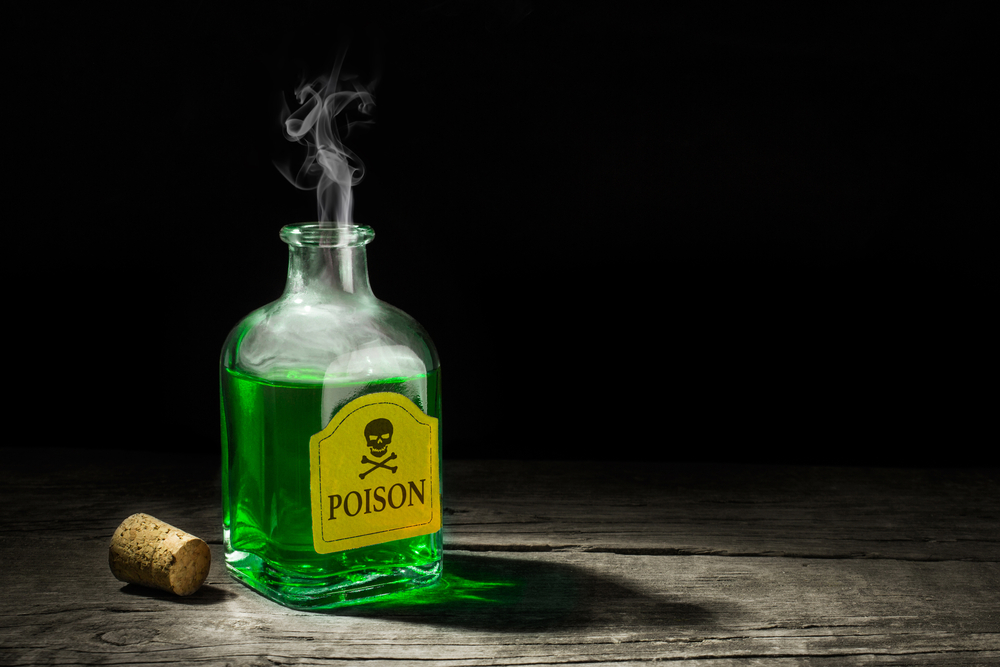An Interview with Author Kim Murphy

Every once in a while, a book comes along that shifts the tectonic plates in my understanding of history.
I used to practice law and was the prosecutor for parole revocation hearings in a ten-country region for Washington State. I’m familiar with elements of the crime of rape. I’m familiar with the questions defense attorneys pose about consent during cross-examination. You’re probably familiar with them too from crime films and books.
What the public never saw was the rape victims in my office when I prepared them for the hearings. They wept. They vented anger. And often, they oozed fear and frustration. It’s not easy to face your rapist in the courtroom, but it’s necessary if we want to send the rapist to prison. Without question, the hardest part of my job as a prosecutor was to lend courage to a frightened rape victim, to convince her to put her fears aside and take the witness stand for the public good.
I wasn’t always successful.
Nevertheless, once a victim agrees to testify, our modern criminal justice system takes a pretty good stab at sifting guilt from innocence, and I naively assumed that had always been the case in United States history. I never realized how much rape laws had changed over time.
My introduction to 19th-century rape laws
Never realized, that is — until I read Kim Murphy’s I Had Rather Die: Rape in the Civil War. Murphy’s non-fiction book is not only a survey of rape in the Civil War but an eloquent testimony to prejudice. Prejudice against African Americans, prejudice against foreigners, and above all, prejudice against women. Prejudice that happened in the very location that’s supposed to be the most impartial place of all: the courtroom.
Kim Murphy joins us for an interview about rape in the Civil War. Watch out for the double standard she offers of a criminal soldier who holds a gun to two victims’ heads, a man’s and a woman’s. Look out for her discussion of Sir Matthew Hale and 19th-century rape laws. And take note of the age of consent. Those are things I never learned in law school. They shocked me to the core. And I think they will shock you too.
You can read more about Kim Murphy below.
If this post changes your understanding of the history of rape laws, please leave a comment below. I’d love to hear from you.
Welcome, Kim Murphy!

What got you interested in the subject of rape in the Civil War?
While researching my Civil War fiction, I kept coming across the topic of rape. Some Civil War historians stated that it was uncommon or “rare.” Originally, I took them at their word, but the more I researched the war, I began to doubt their claim. I thought it was time the women involved had a voice, which is why I ended up writing I Had Rather Die: Rape in the Civil War. The title comes from a woman’s testimony during a court-martial. She said she’d rather die than to have been raped.
Some authors claim the Civil War was a “low-rape war.” Why has this view been so entrenched?
I think part of the view comes from the fact that few soldiers were executed for the crime of rape during the war. With rape being a capital crime during the 19th century, some historians have used that basis for their “low-rape war” belief. As time went on, the belief was repeated without any facts behind it. Some, I believe, also romanticized the war, claiming the soldiers from the Civil War practiced gentlemanly “self-restraint.” Such a belief ignores the problem we still deal with today, where most rapes are never reported.
What do the facts say?

Researchers E. Susan Barber and Charles F. Ritter state that approximately 450 sexual crime cases were heard in Union courts-martial. I personally found over 400 accounts of molestation or rape in the Civil War for my database. Although most were court-martial cases, not all were. Some came from diaries, letters, newspapers, and the Official Records of the two armies. The latter sources show that many cases never made it to trial. The men who were actually charged with the crime rarely got more than a slap on the hand. Some of the sentences were ridiculous, such as their heads being shaved and their getting drummed out of their regiments.
As for the statistics of STD cases, the official report from the United States Surgeon General’s Office stated there were 109,397 cases of gonorrhea and 73,382 cases of syphilis among the U.S. white troops. This report doesn’t include black soldiers or the Confederates. If the Confederate records ever existed, I’m sure they were lost along with most of their other records at the end of the war. In any case, these statistics show that gentlemanly restraint was somewhat lacking.
Are you able to draw any broad conclusions based on the data for rape in the Civil War?
Of the rapes that were reported and went to court-martial, black soldiers frequently received harsher sentences than white soldiers. Of the white soldiers, foreign-born soldiers were more likely to receive harsher punishment. Nearly thirty soldiers were executed for rape or attempted rape. More than half were black, even though they made up 10% of the Union forces. Most of the white soldiers who received the death penalty were accused of other crimes in addition to rape.
As for the victims, conclusions are difficult to arrive at since most rapes are never reported. Those that went to court-martial, upper-class white women were believed more often than poor white women or black women. Poor white women and black women essentially had to prove their cases, since both were regarded as “promiscuous.”
Another factor that many don’t take into account is that during wartime, most reported rapes are during times of occupation. At other times, armies were on the move or engaging in combat. During these times, the authorities had difficulty finding enough officers for judges to hold a court-martial, and women who had been raped wouldn’t have known to whom or where to report the crime.
There are more recorded instances of Union rapists that Confederate rapists. Why is that?
Many of the Confederate records were lost during the retreat and burning of Richmond. Even though few records remain, however, similarities can be seen. Women had to prove they had been raped.
The most shocking thing about your book, at least for me, was the state of the rape laws in the 19th century. Why was a woman required to fight for her life before a court would consider it a rape?

It is true that rape is a most detestable crime, and therefore ought severely and impartially to be punished with death; but it must be remembered, that it is an accusation easily to be made and hard to be proved, and harder to be defended by the party accused, tho never so innocent.
His words echoed throughout courtrooms well into the late-20th century. Basically, his declaration laid the groundwork that women frequently lied about being raped, and it was very difficult for men to prove their innocence. At the time of the Civil War, chastity was regarded as a virtue, so a woman was expected to put up a fight in order to be believed. If she had no bruises or any kind of trauma to her body, she was regarded with suspicion and believed to have most likely given her consent.
An interesting side note: Sir Matthew Hale was also a judge for witchcraft trials. At least two women were hanged when he presided.
So if a man held a gun to a woman’s head and said he would kill her, and if the woman was scared to death and submitted, that would have counted as consent? And did that actually happen?

Yes to both questions. In one particular case, Private Ennis went to the home of Mary Harris in North Carolina. At gunpoint, he asked the women of the household if either would have sex with him. When they said no, he threatened them.
Mary said she was an “old woman with a heap of children.” The private turned to her daughter, Caroline. He took her to another room and locked the door behind them. At that point, he put his gun down, then raped her.
On the same day, Ennis had robbed another man at gunpoint, then attempted to rob another. The second man was also armed and turned Ennis in to the authorities.
At the court martial, Caroline was repeatedly badgered by Ennis in cross-examination. During the Civil War era, the accused often couldn’t afford an attorney, and there was no right to free representation during this time, so the defendants frequently represented themselves. As a result, a woman often faced intense questioning from her rapist.
Ennis never denied what happened but claimed that Caroline “yielded from fear of death.” He was found not guilty for rape, but guilty on the robbery charges, even though the man offered no resistance during the robbery.
And the age of consent was ten? Are there cases of girls that young who got raped and were deemed to have consented?
The age of consent was ten in most states. Kentucky, Virginia, Indiana, and Iowa set the age at twelve. Arkansas established the age to coincide with a girl’s first period, which tended to be several years later than modern girls.
If the case went to trial, a girl of ten was more likely to be believed than an adolescent or an adult. Many girls’ ages, especially slaves, were not given in the records, so it’s anyone’s guess as to how old some were. So yes, I’ve come across records where young girls were raped and said to have consented. When young girls were involved, the soldiers were found guilty more often, but the girls were still frequently asked questions during the testimony as to whether they had contributed to the act.
In one case of a ten-year-old girl, she was raped at gunpoint. A doctor confirmed she had been raped and feared she might die from blood loss. Yet, at court-martial, she was asked questions that indicated she might have tempted her rapist by touching him. The private was found guilty on several charges in addition to rape and was sentenced to be shot, but most of the charges, including rape, were dropped on a technicality because the locality where the rape had taken place wasn’t listed. In the end, the private escaped to Canada.
What has been the scholarly reaction to your book?
I’ve received a couple of excellent reviews, including one from Choice, but the Civil War historians have pretty much ignored the book. I have a feeling they find the topic of rape in the Civil War uncomfortable.
Thank you, Kim!

About Kim Murphy:
Award-winning author Kim Murphy has written historical and historical-fantasy fiction. Her published articles consist of a wide range of subjects, from seizures in the Belgian sheepdog to various topics of the 17th and 19th centuries. From her research for her fiction, Kim learned that historians incorrectly assumed rape was rare during the Civil War. Seven years of researching and writing went into her only nonfiction title to date, I Had Rather Die: Rape in the Civil War. The title was taken from a rape survivor’s testimony during a court-martial case. Her Civil War ghost stories, Whispers from the Grave and Whispers Through Time, have won several awards, including ForeWord Magazine’s Book of the Year Award, an IPPY (Independent Publisher Book awards), as well a nomination for RT Reviewer’s Choice award.
Kim Murphy maintains a website at www.kimmurphy.net.




Thank you for inviting me to stop by.
You’re welcome, but I should be thanking you, Kim. It was an honor to interview you.
Very interesting!
Thanks, Gabriela. Interesting, yes, but shocking too. It’s hard to write about, but I think it’s important that these stories aren’t forgotten.
Rape of young children under ten often went unpunished because the rape occurred without witnesses and the child was considered too young to testify. I would have thought that the idea of force against women would have included holding a gun to her head and the relative strength of men and women. Men were often acquitted of rape in England when penetration couldn’t be proven. Women are always at risk for rape– more so in times of troubles. I think the age of consent in England was twelve.Throughout history men at war have raped women. They’ll rape the enemy women because they are part of the enemy and will even rape women on their own side in celebrating a victory or resenting a defeat.
Thanks for commenting, Nan. It’s true that rape has historically been common during war and I’m glad it has finally been made a war crime. Kim Murphy’s book gives an example of a ten-year-old child being questioned on the witness stand about having been raped. I felt sorry for her because I don’t think she really understood what the adults were asking her about.
Thank you for illuminating me. I find the topic very uncomfortable–and important. I’m sorry it’s not being given the recognition it deserves and hope that will change. It’s important for us to know what women have been up against since the beginning of time. War is never civilized. My proper southern Grandma wouldn’t have spoken about rape even if she knew cases of it, but I hope women tried to protect each other. When my 10-year-old mother was groped and molested by her uncle in 1925 in Ohio, my grandmother said, “Don’t tell anyone. Don’t tell your father or he’ll kill your uncle and go to jail. I’ll make sure you’re never alone with that man again.” My grandmother kept her word, I’m grateful to say. I’m also glad she told me what had happened to her as a girl. Any protection was underground protection.
Thanks for commenting, Elaine. I suspect that women have often carried unwritten histories around with them, and like you, I’m glad they’re getting some scholarly attention. Your family story is sad and my heart goes out to your mother and grandmother. Your grandmother probably reacted in the best way she could given the societal period — women watching over women — and I’m glad she was able to keep your mother away from your uncle.
who runs this website?
I do. Do you have a question?
There is a trove of letters and journal entries passed down from before, during and after the Civil War. They are kept away from public scrutiny. I have read and re-read them, grateful to the writers and the keepers.
Gang rape by soldiers was common, especially during occupation, and no girl or woman was immune. There was no information about gang rape of boys, but that type rape was included in more than one journal. Many of these crimes happened in the countryside, with no official reports because order had broken down and reporting would make life worse for the victims who survived. Former slaves were common victims, too. There was little direct information from those assaulted, but others who witnessed (also victims) wrote. Almost always, all the food was taken, houses often burned, farm animals eaten or simply killed and left there. Starvation was more common than most of us would like to believe. Thank you for writing. In a way, I wish I could show the original information, but I have a deep and respectful understanding and acceptance of why I could never do that.
Thank you for your thoughtful and penetrating comment. There is probably a whole mountain of information about the Civil War contained in private journals and letters that has never been published. The materials to which historians have access is just a fraction of what is really out there. If you’re interested in reading more about the topic, I can really recommend Kim Murphy’s book. She provides a broad perspective based on materials available to her.
Nice content and informative that everyone can refer through. Sexual abuse must not be tolerable in many ways.
Agreed.